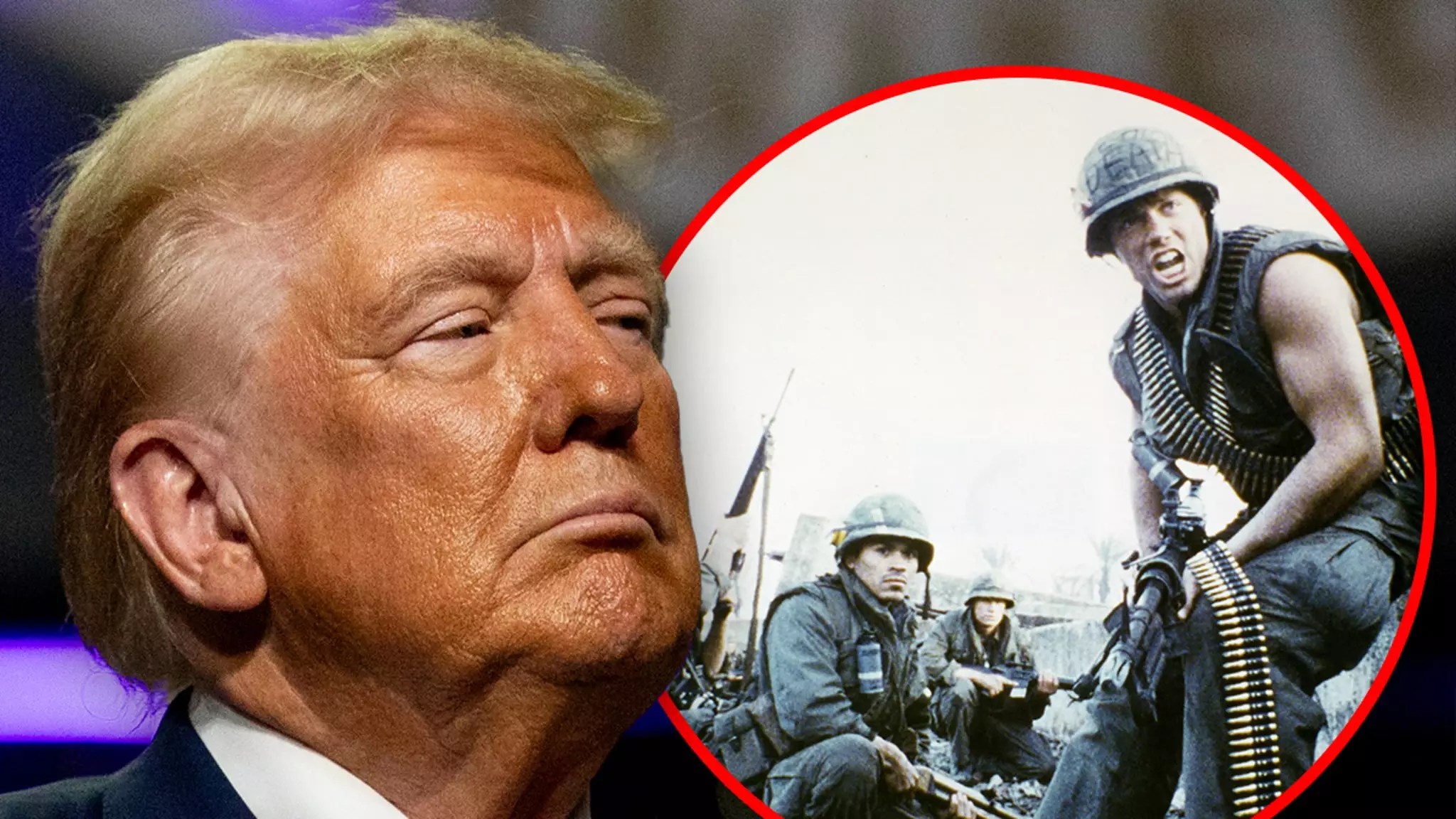In recent political discourse, former President Donald Trump has drawn a stark line in the sand regarding his vision for the United States military. At a rally in Coachella, California, Trump aggressively criticized what he termed a “woke military,” referencing the policies and cultural shifts implemented during the Biden administration. He juxtaposed this modern approach against a nostalgic, almost hyper-masculine depiction of the military, invoking imagery from Stanley Kubrick’s cult classic film, “Full Metal Jacket.” Through this rhetorical device, Trump seeks to emphasize a reversion to a past he views as more honorable and disciplined—a move that highlights a significant ideological divide within the nation.
Trump’s Use of Media to Shape Perception
The rally featured a video that merged scenes from “Full Metal Jacket” with contemporary images deemed emblematic of a military under Democratic leadership. This creative yet controversial approach illustrates Trump’s strategy of utilizing media as a powerful tool for messaging and mobilization. By framing Vice President Kamala Harris and her policies as emblematic of a “woke” military, Trump crafts a narrative that resonated with certain voter demographics who yearn for a time perceived as more traditional and values-driven.
The choice of “Full Metal Jacket” is particularly telling, as the film portrays rigorous and often brutal military training under the watchful eyes of a merciless drill sergeant. The imagery evokes a sense of tough love, discipline, and masculinity that many supporters correlate with effective military training. Trump’s insistence on maintaining an “old school” ethos taps into a nostalgic longing for a bygone era that resonates deeply with his base.
Examination of Policy Impact
Despite the appeal of Trump’s proposed military stance, it raises questions about inclusivity and the realities of modern warfare. Since the repeal of “Don’t Ask, Don’t Tell” in 2010, the military has made concerted efforts to become more inclusive of LGBTQ+ individuals. The recent focus on diversity within the ranks reflects a broader understanding that a multifaceted approach to military readiness can enhance operational effectiveness. However, Trump’s rhetoric signals a potential rollback of these advances, suggesting a militarized vision that could alienate a significant portion of the service members who do not fit into the narrow mold of his ideal soldier.
Moreover, the insinuation that a “woke” military equates to a lack of discipline or effectiveness is both misleading and reductionist. The complexities of modern military engagements require adaptability, inclusivity, and diverse perspectives—qualities that may not align with Trump’s singular focus on a rigid and traditionally masculine archetype of service.
As the political landscape evolves, so too does the discourse surrounding military culture in America. While Trump’s call for a return to a more austere and intimidating military has its momentary appeal, it also risks omitting the valuable lessons learned from a more inclusive and responsive armed forces. The debate surrounding the military’s role within a diverse society will only intensify as national conversations about identity, representation, and effectiveness continue to unfold. In this context, the challenge ahead for both military leaders and political figures is to navigate these complexities while fostering a force that embodies the values of the nation it serves.







Leave a Reply